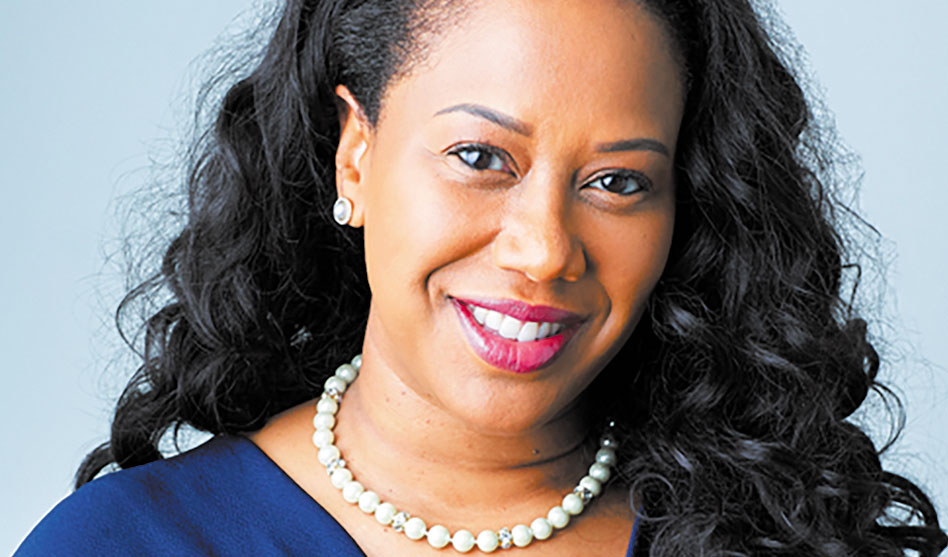New AIDS Outreach Center Executive Director Patrice Williams
While taking over during the difficult time of COVID-19, new ED foresees spreading the agency’s footprint
DAVID TAFFET | Senior Staff Writer
taffet@dallasvoice.com
Following a nationwide search, the board of AIDS Outreach Center earlier this month named Patrice Williams as executive director of Tarrant county’s largest HIV service organization. Williams succeeds Shannon Hilgart, who died of cancer earlier this year, as executive director.
Williams brings with her 20 years of healthcare experience, from developing public policy to working in an AIDS service agency. Much of that experience was at United Services for AIDS Foundation in New Orleans where she also served on the New Orleans Regional AIDS Planning Council. Six years ago, she moved to Houston where she was chief operations officer for Houston Area Community Services, Inc.
Williams has an undergraduate degree in psychology and her master’s degree in healthcare management. And she’s a doctoral candidate in business administration. Those touch on just about every facet of running an agency as diverse as AOC.
A year ago, Williams moved to Fort Worth where, she said, she’s spent most of her time just being a mom. What attracted her to AIDS Outreach Center was its mission to provide quality care with dignity and respect.
AOC offers a wide variety of support services for people living with HIV in Tarrant County that are divided among several agencies in Dallas, including HIV and STD testing, case management, dental services, counseling and a food pantry.
In addition, it provides medical care for its clients through a clinic run by AIDS Healthcare Foundation or AHF.
Williams is beginning her new position at a very strange time. And getting to know her staff isn’t the easiest thing she’s ever had to do, since half of them are working from home during the pandemic.
But that doesn’t mean she isn’t already planning on how she’d like to move her agency into the future. Barriers to care, Williams said, have never been more obvious than they have been during the lockdown, and she wants to do what she can to break those barriers down.
Williams said she’s thinking about expanding the number of locations where AOC offers services and partnering with others in the community, where possible, to not duplicate efforts.
AOC is serving about 2,000 clients in Tarrant and surrounding counties but there are more than 9,000 people in Tarrant County alone living with HIV. How the shutdown has affected HIV and STD testing is a great concern to Williams.
“We used to have walk-in testing,” she said. But now, with social distancing and the need to keep areas clean, testing has been by appointment only, resulting in fewer people tested. Williams said she’d like to get back to some sort of safe walk-in testing again.
But her goal reaches far beyond expanding HIV testing. “As treatment has evolved over the decades, services have to evolve,” she said.
Her vision is a network of community health centers throughout Tarrant County, and she said there’s grant money for that sort of expansion.
During the pandemic, AOC is seeing more people apply for its rental assistance program. Funded by the county and only available to its clients who live in Tarrant County, the program helps people living with HIV who are having trouble paying their rent or utilities.
Keeping people in stable housing is an important part of stopping the spread of HIV. Those without stable housing are the first to fall out of treatment and off their medication. So the rental assistance program has been an effective tool to stop the spread of HIV, Williams said.
Her vision for expanding services also includes competent healthcare for the transgender community. Currently AOC offers a hormone therapy clinic, but Williams understands the lack of comprehensive care for transgender men and women. She hopes AOC’s hormone clinic will develop into a full transgender healthcare program.
And keeping the rest of the LGB community healthy is a concern as well and is another goal.
But in the time of COVID, Williams said she’s focusing on trying to get services back up and running. AOC’s dental program came to almost a complete halt, treating emergencies only. The problem with doing simple cleanings, she explained, is the dental tools used to clean teeth use air pressure, and that just blows the virus around.
Not that there’s been an epidemic of COVID-19 among her agency’s clients. She said she’s heard of a couple of cases and has seen no evidence that people who are HIV-positive, especially those who are undetectable, are any more susceptible to the novel coronavirus than the population in general.
Williams encouraged everyone to do whatever is needed to get through this moment in history: “Learn to adjust,” she said. “People who are positive learned to adjust years ago.”
That included taking steps to protect themselves from catching infections as well as taking steps to stop the spread of HIV. She urged the community to take similar steps to stop the spread of the coronavirus.
But Williams has looked at how her agency is providing services during the pandemic, and she said it’s forcing everyone to maximize their use of technology. Case management can be done remotely, but testing can’t. Telehealth isn’t an answer to everything but is meeting a lot of clients’ needs and making it safer for those who must have a face-to-face meeting with a someone at AOC.
“COVID is making us become more innovative,” Williams said.
While everything feels like it’s in limbo, she said, this period of time is allowing for more planning. “Once we can move forward,” she added, “We’ll make a greater impact on our community than we’ve done in 35 years. I’m very excited to be here.”

